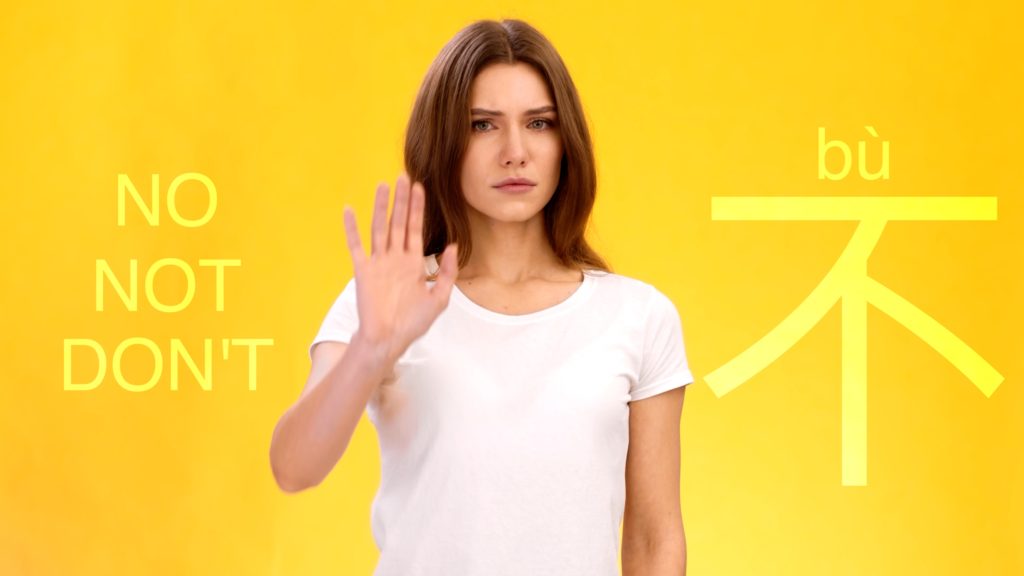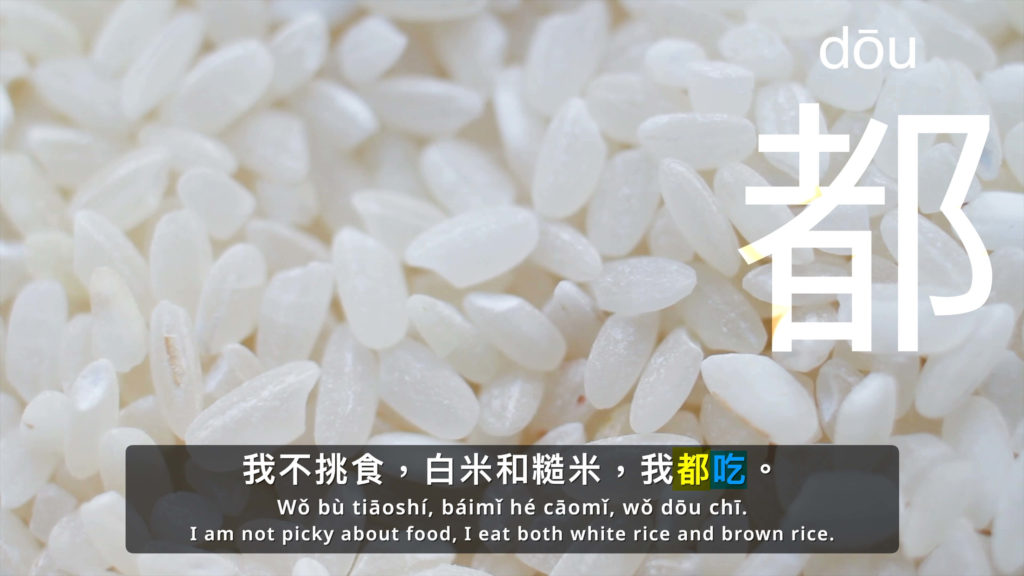Learn 5 super common single-syllable adverbs in Mandarin Chinese.
Adverbs in Mandarin Chinese are words that describe how, when, or to what extent an action is done, similar to their use in English. They are usually placed before the verb in a sentence. Watch the video for examples and a better understanding of how to use these adverbs in Mandarin.
不 bù – no; not; don’t (Negation Marker 1)

我不喝啤酒
Wǒ bù hē píjiǔ
I don’t drink beer.
我朋友不喜欢这部电影,但是我喜欢!
我朋友不喜歡這部電影,但是我喜歡!
Wǒ péngyou bù xǐhuan zhè bù diànyǐng, dànshì wǒ xǐhuan!
My friends don’t like this movie, but I do!
没 / 沒 méi – didn’t (Negation Marker 2)
我喜欢喝啤酒,可是我昨天没喝。
我喜歡喝啤酒,可是我昨天沒喝。
Wǒ xǐhuan hē píjiǔ, kěshì wǒ zuótiān méi hē.
I like to drink beer, but I didn’t drink it yesterday.

Note that 没 is used when you DIDN’T do something, and 不 is used when you DON’T do something. Also, when used with the verb 有, we only use 没 not 不.
也 yě – also

我家有一只狗!
我家有一隻狗!
Wǒ jiā yǒu yìzhī gǒu!
My family has a dog.
是吗?我家也有一只狗!
是嗎?我家也有一隻狗!
Shì ma? Wǒ jiā yě yǒu yìzhī gǒu!
Really? Our family ALSO has a dog!
昨天下雨,今天也下雨,希望明天不会再下了。
昨天下雨,今天也下雨,希望明天不會再下了。
Zuótiān xiàyǔ, jīntiān yě xiàyǔ, xīwàng míngtiān búhuì zài xià le.
It rained yesterday, and ALSO rained today. I hope it’s not raining again tomorrow.
你今天穿蓝色,她今天也穿蓝色。
你今天穿藍色,她今天也穿藍色。
Nǐ jīntiān chuān lánsè, tā jīntiān yě chuān lánsè.
You are wearing blue today. She is also wearing blue.

都 dōu – both; all
我不挑食,白米和糙米,我都吃。
Wǒ bù tiāoshí, báimǐ hé cāomǐ, wǒ dōu chī.
I am not picky about food, I eat both white rice and brown rice.

绿茶和乌龙茶我都喝。
綠茶和烏龍茶我都喝。
Lǜchá hé wūlóngchá wǒ dōu hē.
I drink both green tea and oolong tea.
只 zhǐ – only
周末的时候,我只想呆在家看书,别的地方都不想去。
週末的時候,我只想呆在家看書,別的地方都不想去。
Zhōumò de shíhòu, wǒ zhǐ xiǎng dāi zài jiā kànshū, bié de dìfang dōu bù xiǎng qù.
During weekends, I ONLY want to stay at home and read books. I don’t want to go anywhere else.
我只听嘻哈乐,别的音乐都不听。
我只聽嘻哈樂,別的音樂都不聽。
Wǒ zhǐ tīng xīhāyuè, bié de yīnyuè dōu bù tīng
I only listen to hip-hop music, I don’t really listen to anything else.

Note that 只 can also be used as a measure word for things like cats or dogs, but uses a first tone rather than a 3rd tone. And the traditional character 隻 is when used as a measure word.
There you have it. 5 common adverbs in Chinese to master. Want to learn more? Add these to your Skritter study queue:
- 很 (hěn) – Very
- 非常 (fēicháng) – Extremely
- 真 (zhēn) – Really
- 太 (tài) – Too/Excessively
- 已经 (yǐjīng) – Already
- 很少 (hěnshǎo) – Rarely
- 常常 (chángcháng) – Often
- 有时候 (yǒushíhòu) – Sometimes
- 不太 (bú tài) – Not very
- 快 (kuài) – Quickly/Soon


